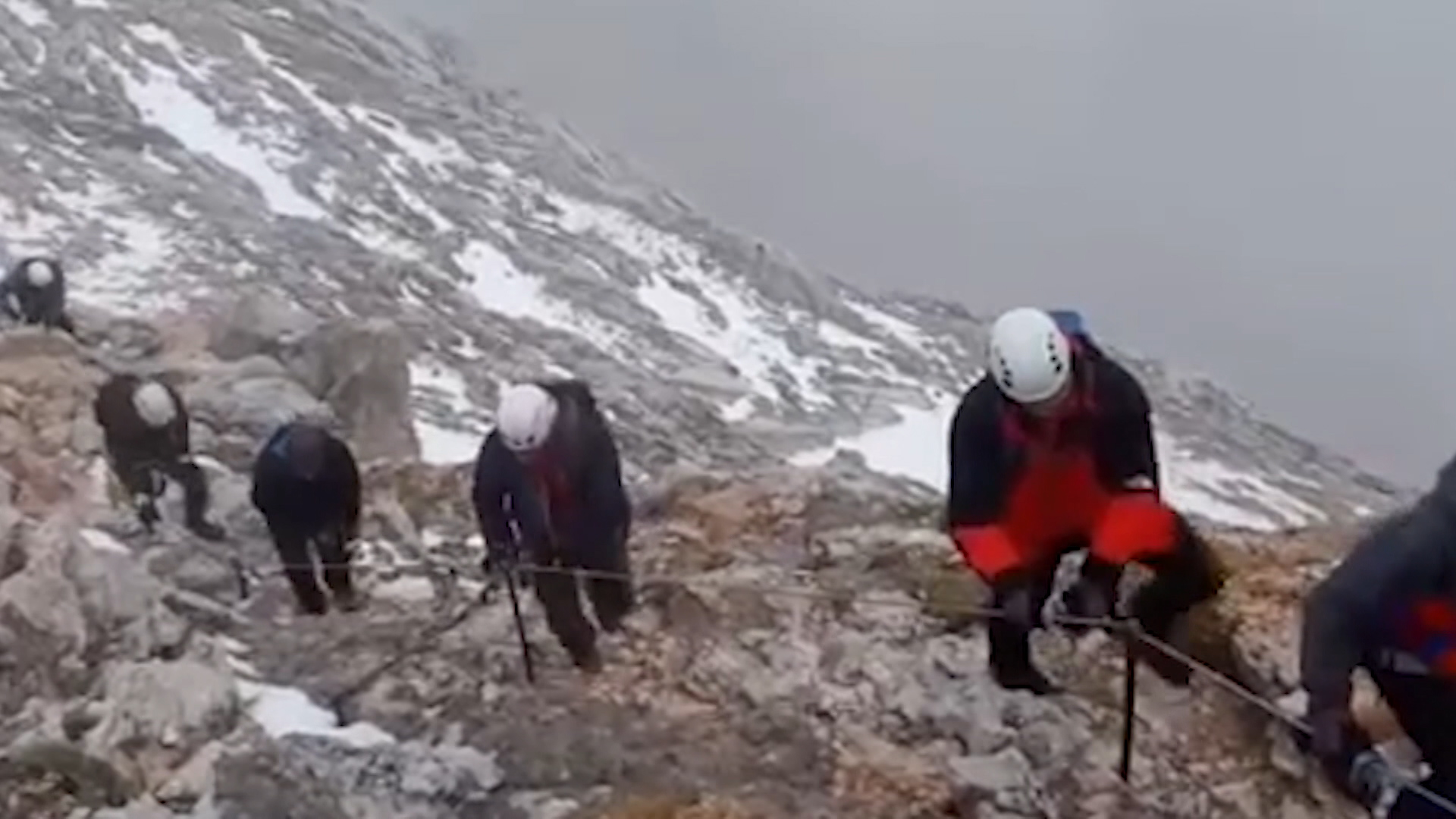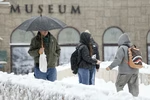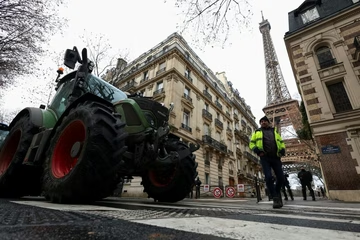Bosnian land-mine victims climb Slovenia's highest summit

Six Bosnian land-mine victims of different nationalities have climbed the highest peak in Slovenia – the 2,864 meters high Triglav with the aim of reiterating the fact that 24 years after the war, Bosnia is still contaminated with landmines.
Oglas
“Some of us came to the very top with prostheses. It's a great honour to climb to the top because the climb is harsh. The colleagues who climbed this peak earlier know the challenge it is for us without arms and legs,” former deminer Zeljko Volas said.
Apart from Zeljko from Banja Luka, Mirko Zecevic from Brcko, Rihard Skopljak from Bihac, Dragan Janjic from Trebinje, Ivo Markovic and Mirko Geljic from Brcko also climbed the Triglav summit.

All of them are mine victims. Once they used to wage war against each other, now they have a common goal.
Oglas
“Triglav is an extremely demanding summit. Compared to our Bosnian mountains it is not as demanding, but for us it was. We really had no problem with each other, we're mine victims and we have a common goal – to point to the areas still covered with mines and that Bosnia should be mine-free by 2025,” Rihad Skopljak said adding that they also wanted to let people know that land mine victims have their own needs like monthly incomes and orthopaedic aids.
The sad statistics show that 8,358 mine accidents happened in Bosnia, of which 14 percent were children who lost their lives and 7 percent of women lost theirs during the 1992.1995 war in Bosnia. After the war, there were 1,758 mine accidents in which 615 persons lost their lives. During humanitarian mine-clearance operations, 74 deminers lost their lives.
That is why the amputees' message was clear.
“Lets clear the country of mines. We should pay more attention to land-mine victims and all levels of government should do more to help mine victims and their families and communities,” Volas said.
Oglas
The amputees say that their next goal will be an even higher summit, such as the African Kilimanjaro summit.
Kakvo je tvoje mišljenje o ovome?
Učestvuj u diskusiji ili pročitaj komentare
Oglas
Kakvo je tvoje mišljenje o ovome?
Učestvuj u diskusiji ili pročitaj komentare
Oglas
NAJČITANIJE
Oglas
Oglas
Najnovije
Oglas
Oglas





 Srbija
Srbija
 Hrvatska
Hrvatska
 Slovenija
Slovenija



























































